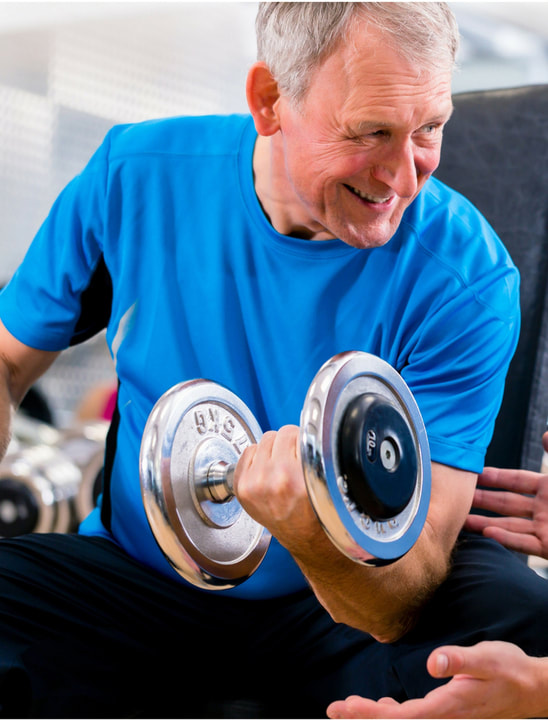|
Men often neglect their health, and often confuse being on their feet all day at work with exercise. Unfortunately these 2 things are not the same, and many men are not getting enough exercise to have a positive impact on their health, i.e. prevent heart disease, diabetes, mental health conditions to name a few. But, our Exercise Physiologists are the EXPERTS IN EXERCISE and can help you get back into tip top shape.
Worrying statistics about our husbands, dad’s partners, brothers ..
How much exercise should men be doing each week?:
5 tips to get started and help you to stay on track are to:
What are the top 3 conditions leading to death for men in Australia and how we can help: Number 3 is Dementia and Alzheimer's Disease Dementia is a collection of symptoms that affect the brain, affects a person's ability to think, how they behave and their ability to complete everyday tasks. In 2019 there were close to half a million Australians living with dementia. So the good news is that the evidence is piling up to prove that the more active you are in life, the lower the risk of Dementia & Alzheimer’s disease. On top of that; aerobic exercise such as walking, cycling, swimming assists to improve cognitive function, and simply being active everyday helps to maintain memory. We can help you develop a focused exercise program. Number 2 is Lung Cancer Lung cancer has the highest mortality rate of all cancers worldwide, however the good news is that studies have found that men who participate in physical activity lower their risk of developing lung cancer by 20-50%, and there appears to be a dose dependent response, which means the more you do, the greater the benefit. However, the risk of lung cancer is several times higher in smokers, regardless of activity level, than in those who never smoked. So giving up smoking alongside exercise will help to reduce your risk. The Number 1 cause of death in men in Australia is Cardiovascular Disease Cardiovascular disease is when the arteries of the heart become blocked and therefore oxygen delivery to the heart is limited, and can lead to a heart attack. Being male, being overweight or obese and physical inactivity are 3 risk factors for the disease. Exercise can help to manage your weight, reduce your stress, and independent of weight loss exercise helps to lower your cardiovascular disease risk. By, Lisa Parkinson
0 Comments
Your comment will be posted after it is approved.
Leave a Reply. |
AuthorSLisa Parkinson Archives
July 2024
Categories
All
|


 RSS Feed
RSS Feed